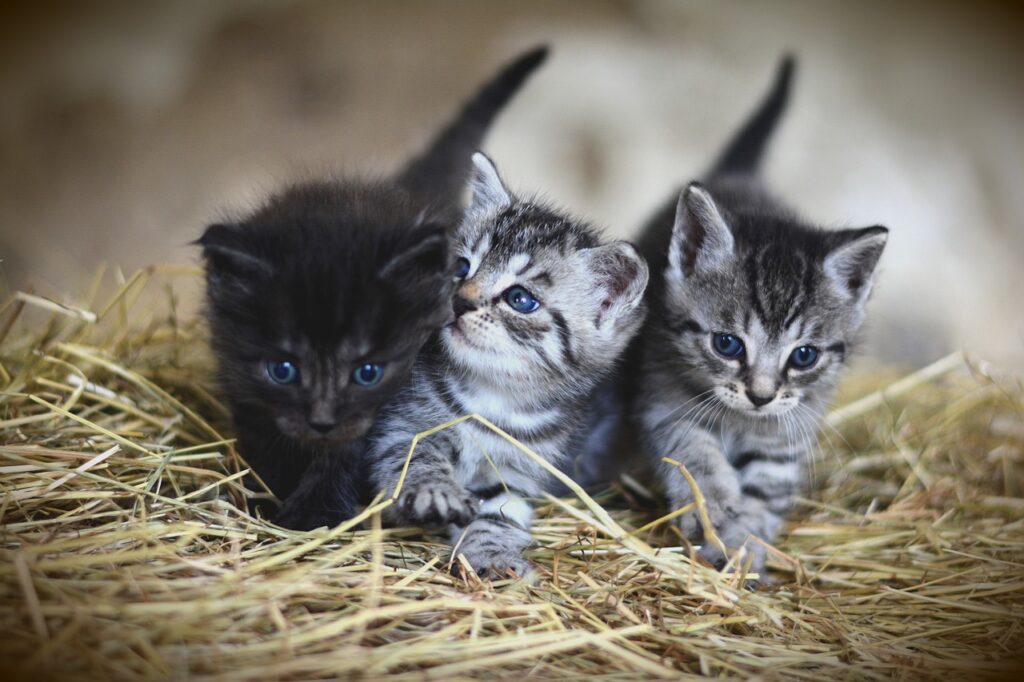Can Cats Eat Cherries? – No, They Can’t
Cats and cherries don’t mix. As tempting as it might be to share a bite of your cherry cobbler with your feline friend, cherries are a definite no-go for cats. The flesh itself isn’t toxic, but the pits, stems, and leaves are harmful because they contain cyanide, which is poisonous for cats. The risk outweighs any potential benefits, making cherries an unsuitable snack for cats.
Is It Safe for Kittens to Consume Cherries?
For kittens, whose digestive systems and bodies are still developing, cherries are even more hazardous. It’s essential to keep cherries, alongside their pits, stems, and leaves, away from kittens. The risk of cyanide poisoning, as well as the possibility of choking on a cherry pit, makes it clear that cherries should not be a part of a kitten’s diet.
Risks Associated with Feeding Cherries to Kittens
The immature systems of kittens are particularly sensitive to any form of toxin. Even the smallest amount of cyanide can result in poisoning, and the potential choking hazard of a cherry pit presents a clear danger to their safety. Additionally, the high sugar content of cherries can lead to gastrointestinal upset and other diet-related issues in kittens.
Why Cherries are Not Recommended for Cats
Cyanide Toxicity
Cats lack the appropriate enzymes to detoxify cyanide, which means that the ingestion of cherry pits, leaves, or stems can lead to cyanide poisoning. This condition disrupts the body’s ability to transport oxygen, which can lead to breathing difficulties, shock, and even death if not treated immediately.
Choking Hazard
Cherry pits pose a significant choking risk. Cats may be curious and nibble on or swallow pits, which can lodge in their throat or intestines. Obstructions like these can be life-threatening and may require emergency veterinary intervention.
Digestive Issues
The sugar content in cherries can upset a cat’s stomach, causing digestive discomfort, diarrhea, or vomiting. Since cats are obligate carnivores, their digestive systems aren’t well-suited to breaking down high amounts of sugar or fruit.
Known Health Issues in Cats from Consuming Cherries
Ingesting cherries can lead to a range of health issues in cats. Symptoms of cyanide poisoning include labored breathing, bright red gums, and dilated pupils. Gastrointestinal upset may manifest as lethargy, loss of appetite, vomiting, and diarrhea. If any of these symptoms occur, it’s vital that the cat be seen by a veterinarian immediately.
What to Do If a Cat Has Consumed Cherries?
- Immediate Veterinary Care: If you suspect your cat has ingested any part of a cherry, seek veterinary assistance immediately. Time is vital when dealing with potential poisoning.
- Induced Vomiting: Do not try to induce vomiting at home unless directed by a veterinarian, as it may cause additional complications.
- Prevent Further Access: Ensure that all cherries and their discarded parts are out of reach to prevent any further ingestion while you prepare to visit the vet.
Safe Alternatives to Cherries for Cats
As carnivores, cats benefit most from protein-based treats. However, for owners wanting to offer a fruit treat, small amounts of melon, banana, or apple (without seeds or core) are safer alternatives to cherries. All treats should be given in moderation and as part of a balanced diet, under the guidance of a veterinarian.
Conclusion
To sum up, though cherries might seem like a sweet treat, they are not a safe choice for your feline friends. The potential for cyanide poisoning, choking hazards, and digestive disturbances far outweigh any benefits. It’s best to err on the side of caution and keep cherries out of paw’s reach, sticking to cat-safe alternatives to ensure your pet’s health and happiness.



